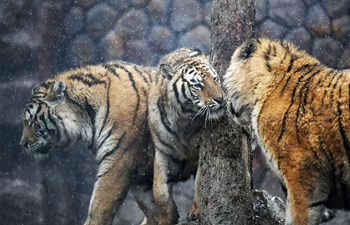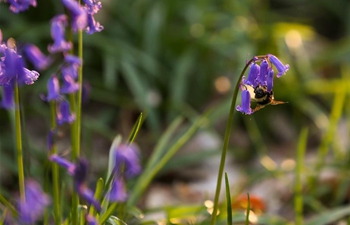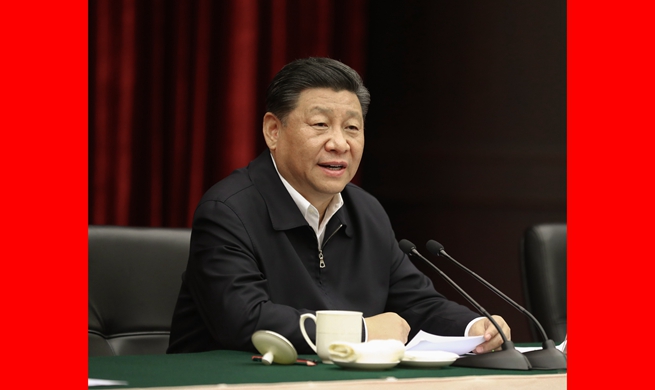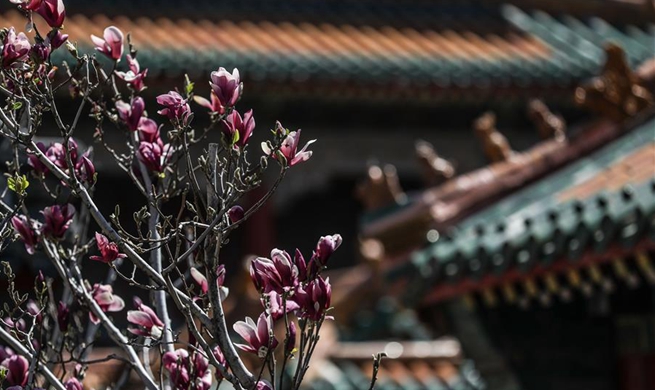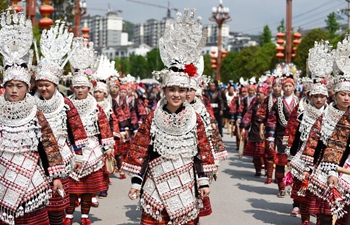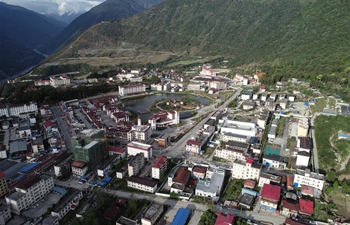CHANGSHA, April 19 (Xinhua) -- At the departure hall of the Changsha Huanghua Airport, milk-white bracelets, necklaces and chopsticks were placed on an azure velvet table. However, there were no price tags. Instead, a blackboard next to them indicated that they were ivory crafts seized by customs authorities.
As curious passengers walked by, customs officers handed out free stickers and keychains marked with "say no to ivory products," attached with educational brochures. The display then put up a luggage-sniffing demo by a Labrador retriever to show how hidden wildlife products could be easily detected.
Li Xingzhou, an official with Changsha customs, considered the event a big success against the ivory trade. "In the past, we mainly relied on ads and press releases to spread our message. Now we are trying out new and more effective methods."
Similar activities are bringing customs closer to the public in other Chinese cities like Guangdong and Shanghai, offering a glimpse into China's enhanced publicity campaigns to deliver on its promises on environmental protection.
In Shanghai, customs officials not just deliver brochures at airports, but also hold exhibitions about endangered species at the Shanghai Natural History Museum to reach the public.
China, which completely banned domestic ivory sales at the turn of 2017 and 2018, has been ratcheting up crackdowns on wildlife trafficking. In 2018, Chinese customs seized 25,671 items of endangered species and their products, including ivory items.
On March 30, China cracked a cross-border smuggling ring with a seizure of 2,748 elephant tusks weighing 7.48 tonnes, the biggest volume busted by Chinese authorities in recent years.
But customs officials warned that as the country grows richer and sends out more tourists, their luggage becomes a major channel for ivory to enter the country.
Changsha, capital of central Hunan Province, for instance, saw an uptrend in customs seizures of wildlife products in recent years. Since the beginning of this year, the local customs have confiscated 42 items of endangered species and their products, including 25 ivory items.
"More Chinese tourists are going abroad, including an increasing number of elderly people who receive less information than the younger generation," said Li, who said banned wildlife products are now mainly seized from those aged between 40 and 60. Young travelers, meanwhile, are rarely found to unwittingly violate the laws.
The good news is that the enhanced customs' publicity is generally welcomed by Chinese tourists, many of whom are supportive of the country's tougher wildlife policy.
Wen Ping, a tourist from Zhengzhou who was transferring at the Changsha airport before flying to Thailand, was impressed by the publicity video made by the customs.
"Many tourists have no idea what souvenirs cannot be brought into China. They think goods sold at stores overseas must be legal," she said. "That's where the line of the video 'the souvenirs you bring back may serve as proof of your crime,' strikes a chord."








